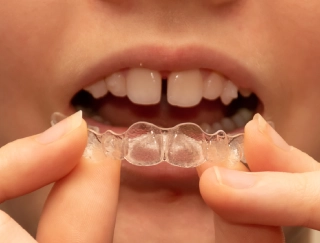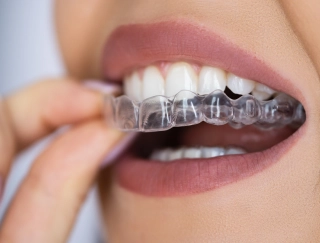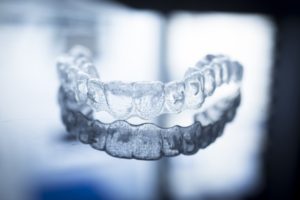If you experience severe or persistent pain, particularly beyond the initial adjustment period with new aligners, it may indicate these issues.
Persistent Pain: -
If the discomfort continues beyond a few days after switching aligners, it might suggest an underlying problem that needs attention. Persistent pain indicates ongoing discomfort beyond the normal adjustment period with aligners, signaling potential issues like misalignment or improper fit. It's crucial to consult your orthodontist promptly to address any concerns and prevent complications that could impact your treatment progress.
Severe Pain: -
Intense or sharp pain, particularly if it worsens over time, could indicate more damage to a tooth. Severe pain with aligners is rare but could indicate significant issues such as severe misalignment, nerve compression, or other complications. Immediate attention from your orthodontist is essential to assess the situation, diagnose the underlying cause, and provide appropriate treatment to alleviate discomfort and ensure the success of your orthodontic treatment.
Localized Pain: -
Localized pain with aligners is common and typically occurs when the aligners exert pressure on specific teeth to move them into the desired position. This discomfort is usually mild to moderate and temporary, lasting for a few days after starting a new set of aligners or following adjustments. It indicates that the aligners are working to shift your teeth as planned. Applying orthodontic wax to the edges of the aligners or taking over-the-counter pain relievers can help alleviate this discomfort. If the pain persists or worsens, it's important to consult your orthodontist for further evaluation and guidance.
Signs of Infection:-
Symptoms like swelling, redness, or drainage around the gums or tooth may indicate an infection that requires immediate treatment. In some cases, there may be a foul taste or odor in the mouth. These symptoms can indicate gum disease or infection, which may require prompt treatment by a dental professional. If you experience any of these signs, it's essential to seek immediate dental care to prevent further complications and ensure the success of your orthodontic treatment.
Difficulty Eating or Speaking: -
Difficulty eating or speaking can also be a sign of potential issues with aligners. If aligners are causing significant discomfort or making it challenging to chew food or articulate clearly, it's important to consult with your orthodontist. This difficulty could indicate that the aligners are not fitting properly or that there may be underlying issues with your teeth or jaw alignment that need to be addressed. Your orthodontist can assess the situation and make any necessary adjustments to ensure your treatment progresses smoothly and comfortably.
Changes in Bite: -
Changes in the bite can occur due to wearing aligners, especially during the initial stages of treatment. While some degree of discomfort or adjustment period is normal, significant changes in your bite should be addressed promptly. If you notice that your bite feels different or if your teeth no longer fit together properly, it's essential to inform your orthodontist. This could indicate that the aligners are not aligning your teeth correctly or that other issues may need attention. Your orthodontist can evaluate your bite and make any necessary adjustments to ensure that your treatment progresses as planned and that your bite remains stable throughout the process.
Consultation with Orthodontist:
Consultation with an orthodontist is essential if you experience any concerns or discomfort during your aligner treatment. An orthodontist can assess your progress, address any issues that arise, and provide guidance on how to alleviate discomfort. Whether you're experiencing pain, changes in your bite, or any other unexpected symptoms, scheduling a consultation allows your orthodontist to examine your teeth and aligners thoroughly. They can then recommend appropriate adjustments to ensure that your treatment progresses smoothly and effectively.






